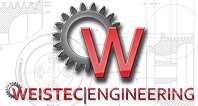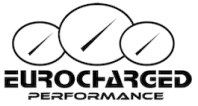Results 1 to 3 of 3
-
05-27-2019, 05:49 AM #1
Comparison of vehicle vs performance vs cost vs maintenance vs mileage vs utility
I want to compare some vehicles. Mostly cars but lightweight gasoline trucks are kind of like cars.
weight class 2700-3600lbs
power:weight ratio roughly .14285 minimum, prefer .2177 or higher
so for example 2800lbs, approx 460bhp (400rwhp through a manual trans) is .14285 standard minimum, we can get this from a typical 2.0L turbo made after 1992 (Nissan and Mitsubishi for example).
engine/transmission (drivetrain)
economy range 20-35mpg highway steady cruise 70-75mph+
20mpg is fine for using 87 octane fuel ($2.50/gallon current price)
This comparison is done by dollars/miles not miles/gallon.
If the engine requires 93 octane all the time (just to cruise) then it must be 30mpg+ to meet the same miles/dollar as 87 octane at 20mpg.
Fuel use preferably 87 octane for distance driving is fine
93 octane for normal driving and full power
What does the setup produce with these fuel options:
How much torque/power on 87?
how much on 93?
how much with methanol/water?
How much on E85?
Cost to build the vehicle:
original cost of car
Cost for setup
Ease of building the vehicle:
swap kits? oil pan kits? suspension? etc...
Summary:
weight
power (weight) ratio
drivetrain spec
economy feature (city/highway) using gasoline
Fuel option expectations
Ease of vehicle concept to reality
Cost/availability/location
pros/cons
Examples using cars I already know
Weight: 2800lbs (240sx)
power: 400rwhp @ 2800lbs (meets minimum power:weight)
drivetrain 2.0L Turbo 5-speed (sr20det)
economy: 25city/32mpg highway for newish 9.5:1 compression 2.0T
Fuel options: 87 octane max torque 160-170ft*lbs (not a performance car on 87)
93 octane max torque around 400ft*lbs usually and 400rwhp, using OEM piston
E85 around 500rwhp but kind of requires a forged piston at this point
Ease of vehicle production: Can have the car done running in a single day using typical SR swap techniques (very easy job)
Cost: $10,000-$15,000 drivetrain ready to go for 10-20 years reliable
pros: easy to swap, easy to tune, huge aftermarket, lightweight, brakes and differential solutions are simple and affordable for 240sx, replacement parts are easy to find currently in CL
cons:
87 turns it into a 'regular car'
clutch/manual transmission can be bothersome to some and is more maintenance
motorsets are harder to find now
Example 2
weight 3200lbs (240sx)
power: 500-600rwhp @ 3200lbs
drivetrain: 4.8-6.0L turbo 4l80e automatic
Economy 17city/22highway for used tired engines 150,000miles
Fuel options: 87 octane max torque ~300-350ft*lbs (still a fun car on 87)
93 octane max torque around 500ft*lbs
+methanol injection around 600ft*lbs before stock engine is questionable (4.8/5.3)
E85 1000rwhp is possible on 6L stock engine
Ease of vehicle production: Takes about 6 months, most swap parts are available (intermediate level)
Cost: $15,000-$20,000 for turn key turbocharged 500rwhp~ pump gas daily drivable, reliable swap
pros/cons:
-Can make fun torque with 87 octane but mileage is low due to automatic 4l80e.
-22mpg using 87 @ $2.50/gallon still beats 30mpg using $3.23/gallon 93 octane.
-easy brake upgrade is cheap, and easy/cheap 3.5:1 differential solution (32-spline axles) make the torque reliable
SO now lets add some more to this list, I made this fast so Im sure I left out a bunch of pros and cons and all sorts of details. Its just to get started.
What we are looking for is the lowest cost, easiest to build, most reliable, etc... best vehicle for the price with the most power and most economy/fun
-
05-27-2019, 08:11 PM #2
what's the budget of the car it self , most important part you've missed
Hellcat 9.1@155
RS3 9.25@155 on the street
E63S sold
S4 b5 sold
WK2 s/c sold
IG SDRPerformance
-
05-28-2019, 08:07 PM #3
I write
Original cost of car
Cost to setup
for both examples provided these details.
Although we can always add more information.
Cost to maintain yearly for example. For example A and B you expect just oil changes, with an engine or transmission every 20-35 years give or take. But some setups will eat clutches or transmissions or differentials or axles, parts break after 1000rwhp 8 seconds 7 seconds you can't just keep using OEM quality parts for everything. Or if you make a mistake, even at low power 500rwhp a mistake can take out an engine with a cast piston. SO how do we integrate the potential to make a mistake into a yearly cost estimate? I suppose we could say there is a 80% chance to not make a mistake or something like that and divide it into two groups of mistake makers (20% of attempts make a mistake here and it costs this much) and mistake avoiders (people who never blow the part up)






 Quote
Quote











Welcome Haldi,...
Let's point and laugh at Haldi